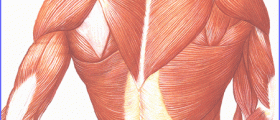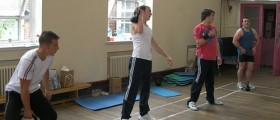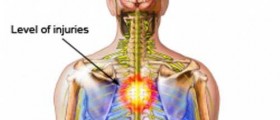Loading...
Loading...
Loading...
Loading...
I'm 55 (very healthy male) and just had my second episode this week, but have had them in the past (once or year or so).
Thanks for all the posts...helps a lot!
For me, it's probably spine related (NOT going to worry about MS) as the job has been stressful and I DO have pinched nerves in my back.
Loading...
Loading...
Im a very healthy person and just recently have just started having these symptoms. It actually feels like my lifeforce is leaving my body very quickly. I HAVE TO lye down immediately for a few seconds no matter what I am doing other wise I feel like I may fall down. My Blood pressure is low and I do take liquid trace minerals derived from Ocean. My diet is excellent, along with many supplements. its got me puzzled.
Loading...
Loading...
Loading...
I'm 61, fairly active, a dedicated high mile cyclist. EKG's are good, blood work OK.
I started taking a multi-vitamin and drinking an electrolyte solution in the morning to make sure I'm properly hydrated. don't know if it actually helped or was just a placebo.
Weak feeling staring again in the AM. Will start taking blood pressure again - 101/40 today.
Loading...
I have had the sudden weakness in my arms as described by others about four times in the last 3 months. I also experience soreness in the muscle on top of my right shoulder at the same time. I have also had the zig zag visuals at other times several times a year for over 20 years. I recently started working with a chiropractor and have not had any of either of these symptoms since. Hope this is the answer.
Loading...
Mary wrote:
I am experiencing these same symptoms. Please let me know if you have received any diagnosis.
The doc can't figure it out. Last year, I took my blood pressure in the AM after being up for about an hour. I would feel a bit weak in the arms, but wasn't experiencing the more pronounced feeling that made me sit down. It was usually low. Did this for a month.
I'm 61, fairly active, a dedicated high mile cyclist. EKG's are good, blood work OK.
I started taking a multi-vitamin and drinking an electrolyte solution in the morning to make sure I'm properly hydrated. don't know if it actually helped or was just a placebo.
Weak feeling staring again in the AM. Will start taking blood pressure again - 101/40 today.
Lot's of posts talk about low potassium and magnesium levels. As a cyclist, it's hard for me to stay hydrated no matter how much water or electrolyte solution I drink. I would wake up during the nights with tremendously painful cramps in legs. Other cyclists told me about low potassium and cramping. Now I read that phosphates in soda binds with potassium and flushes it out of the system. I drink a lot of diet pop and coffee and am over 55. (see below). I'm going to reduce intake of diet pop. I'm a coffee junkie so I can't quit that habit. I'm going to look for a mulit-vitamin with more magnesium and potassium in it. See if that helps.
Muscular Symptoms
• A deficiency in either potassium or magnesium effects your muscles. If you are experiencing a potassium deficiency, you may feel physical weakness in your muscles, particularly in your arms and legs. You may also experience muscle cramps and aches. Muscle cramps are also an early sign of a magnesium deficiency, including contractions and tingling.
• Do you drink carbonated beverages on a regular basis?
• Most dark colored sodas contain phosphates. These substances actually bind with magnesium inside the digestive tract, rendering it unavailable to the body. So even if you are eating a balanced diet, by drinking soda with your meals you are flushing magnesium out of your system.4 5 6
• The average consumption of carbonated beverages today is more than ten times what it was in 1940.7 This skyrocketing increase is responsible for both reduced magnesium and calcium availability in the body.8 9
• Do you drink coffee, tea, or other caffeinated drinks daily?
•
• Magnesium levels are controlled in the body in large part by the kidneys, which filter and excrete excess magnesium and other minerals. But caffeine causes the kidneys to release extra magnesium regardless of body status.
• If you drink caffeinated beverages such as coffee, tea and soda regularly, your risk for magnesium deficiency is increased.
• Did you answer yes to any of the above questions and are also age 55 or older?
• Older adults are particularly vulnerable to low magnesium status. It has been shown that aging, stress and disease all contribute to increasing magnesium needs, yet most older adults actually take in less magnesium from food sources than when they were younger.
• In addition, magnesium metabolism may be less efficient as we grow older, as changes the GI tract and kidneys contribute to older adults absorbing less and retaining less magnesium.15
• If you are above 55 and also showing lifestyle signs or symptoms related to low magnesium, it’s particularly important that you work to improve your magnesium intake. When body stores of magnesium run low, risks of overt hypomagnesaemia (magnesium deficiency) increase significantly.
Loading...
jerryo351 wrote:
Mary wrote:
I am experiencing these same symptoms. Please let me know if you have received any diagnosis.
The doc can't figure it out. Last year, I took my blood pressure in the AM after being up for about an hour. I would feel a bit weak in the arms, but wasn't experiencing the more pronounced feeling that made me sit down. It was usually low. Did this for a month.
I'm 61, fairly active, a dedicated high mile cyclist. EKG's are good, blood work OK.
I started taking a multi-vitamin and drinking an electrolyte solution in the morning to make sure I'm properly hydrated. don't know if it actually helped or was just a placebo.
Weak feeling staring again in the AM. Will start taking blood pressure again - 101/40 today.
Lot's of posts talk about low potassium and magnesium levels. As a cyclist, it's hard for me to stay hydrated no matter how much water or electrolyte solution I drink. I would wake up during the nights with tremendously painful cramps in legs. Other cyclists told me about low potassium and cramping. Now I read that phosphates in soda binds with potassium and flushes it out of the system. I drink a lot of diet pop and coffee and am over 55. (see below). I'm going to reduce intake of diet pop. I'm a coffee junkie so I can't quit that habit. I'm going to look for a mulit-vitamin with more magnesium and potassium in it. See if that helps.
Muscular Symptoms
• A deficiency in either potassium or magnesium effects your muscles. If you are experiencing a potassium deficiency, you may feel physical weakness in your muscles, particularly in your arms and legs. You may also experience muscle cramps and aches. Muscle cramps are also an early sign of a magnesium deficiency, including contractions and tingling.
• Do you drink carbonated beverages on a regular basis?
• Most dark colored sodas contain phosphates. These substances actually bind with magnesium inside the digestive tract, rendering it unavailable to the body. So even if you are eating a balanced diet, by drinking soda with your meals you are flushing magnesium out of your system.4 5 6
• The average consumption of carbonated beverages today is more than ten times what it was in 1940.7 This skyrocketing increase is responsible for both reduced magnesium and calcium availability in the body.8 9
• Do you drink coffee, tea, or other caffeinated drinks daily?
•
• Magnesium levels are controlled in the body in large part by the kidneys, which filter and excrete excess magnesium and other minerals. But caffeine causes the kidneys to release extra magnesium regardless of body status.
• If you drink caffeinated beverages such as coffee, tea and soda regularly, your risk for magnesium deficiency is increased.
• Did you answer yes to any of the above questions and are also age 55 or older?
• Older adults are particularly vulnerable to low magnesium status. It has been shown that aging, stress and disease all contribute to increasing magnesium needs, yet most older adults actually take in less magnesium from food sources than when they were younger.
• In addition, magnesium metabolism may be less efficient as we grow older, as changes the GI tract and kidneys contribute to older adults absorbing less and retaining less magnesium.15
• If you are above 55 and also showing lifestyle signs or symptoms related to low magnesium, it’s particularly important that you work to improve your magnesium intake. When body stores of magnesium run low, risks of overt hypomagnesaemia (magnesium deficiency) increase significantly.
It is nice to know that I am not alone in this problem. I have had this sensation with weakness in my arms and hands 4-5 times in the last 3 years. It IS scary when it happens. My hands "go their own ways" - I don't have much control of their movements. It only lasts up to 5 minutes. Last time I felt a little sick, but after it was over, everything was normal. I did mention it to my doctor who was a little puzzled. Said it couldn't be a stroke since it occurs in both arms. I should get my magnesium level tested. I am 78 years old and otherwise healthy and active.
Loading...
Loading...
have u any answers to your weakness you experience in your arms? i was surprised to see your blog for i experience the same thing.
Loading...













-Causes,-Symptoms,-Diagnosis,-Treatment_f_280x120.jpg)



